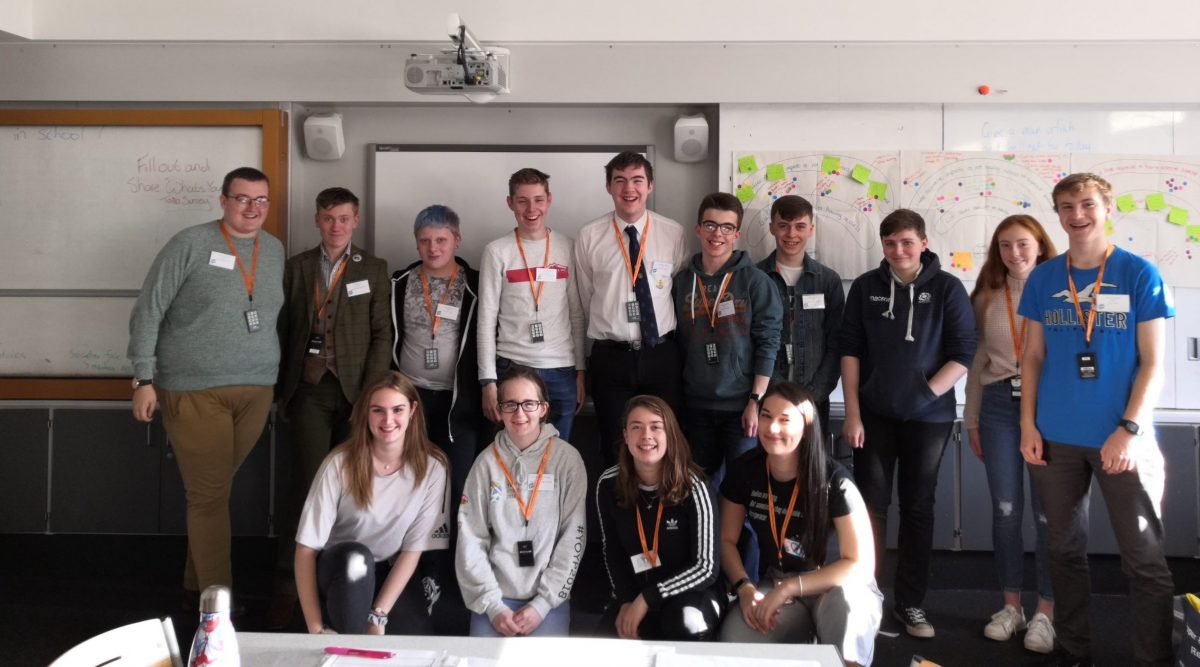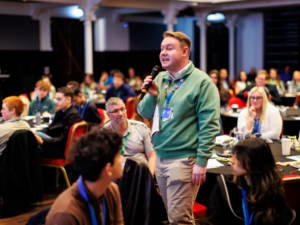R100 is the Scottish Government’s project to ensure every household in Scotland has access to superfast broadband by 2021.
At our 71st national Sitting (SYP71) the Transport, Environment and Rural Affairs Subject Committee (TERA) spent our session taking part in an activity all about R100, bringing both our own views as well as the views of the 818 young people from across Scotland who took part in our ‘What’s Your Take’ survey. Feeding directing into the scrutiny of the plans by the Scottish Parliament’s Rural Economy and Connectivity Committee (REC).
In this blog I want to provide a snapshot of the views from both our TERA MSYPs as well as the young people.
In this blog I want to provide a Snapshot of the views from both our TERA MSYPs as well as the young people.
We asked respondents two questions:
- List three negative impacts of not having access to superfast Broadband.
- List three positive impacts of having access to superfast Broadband.
So let’s take a quick look at some of the themes which came to light!
Connection:
Connection was a prominent theme in both the survey and the workshop. It is very important to young people to having a reliable, high-speed connection to ensure they have access to websites, social media, emails, streaming, gaming and can download files. Young people don’t want to have to wait for things to buffer, and crashing can result in lost files. People would get lost without live online maps, and travel information. With access to superfast broadband, there would be increased safety and access to help in emergencies.
Children in care homes are still without WiFi – how do we expect them to have a good quality of life when they are without something most other children take for granted?”
Barriers to education:
This was another common topic which was consistently raised by respondents, alongside access to external opportunities. As educational resources (such as homework and lesson notes) are increasingly digitalised by schools, colleges and universities, it is harder to participate without a quick and reliable internet connection. This also impacts work and voluntary opportunities as more resources and documents are shared electronically, and jobs applied for and advertised online. Many said they would no longer be able to work from home.
Inability to access knowledge, research and use search engines (inc. medical info).”
Isolation:
Without access to news updates or social media, respondents reported an increase in feelings of isolation due to missing out on current affairs or social events with friends and family.
Lack of communication with other people including friends, family, colleagues. Including those who live far away. Losing memories spent with them.”
Our findings also demonstrate that a lack of access to high-speed broadband will affect rural and coastal areas the most, creating inequality and a loss of business. One respondent was concerned they would no longer be able to access their benefits, and someone said that mental health could suffer.
We reached the following conclusions from the consultation workshop and survey:
- Young people are in favour of access to superfast broadband.
- The Scottish Government need to explain what ‘superfast broadband’ means to the general public, and how they will ensure every household will have it.
- Access to 4G needs to be improved in rural areas.
- Access to 4G would improve Scotland’s sense of community and equality.



